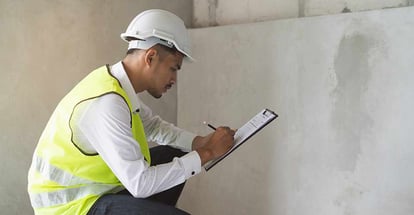What to Know About Buying an Investment Property With Friends in Florida
Buying an investment property with friends can be a great way to build wealth, but you must understand the potential pitfalls before you get started. Because this is a typical arrangement, I wanted to take time and share my thoughts on what makes it work, along with some of the common problems that arise when buying with friends (and how to avoid them).
What is a shared investment property?
Shared investment property is a property owned by a group of people. Each person has a share of the property, which means they own an equal portion. Each person also has a say in managing the property. This makes shared investment properties great for beginners because you don't need to be an expert on real estate investing or have lots of money to get started.
Types of ownership for shared investment
Joint tenancy: This is the most common type of shared ownership, which means that you and your partner own the property together as a 50/50 split. If one person dies without a will, their share goes to their estate; if there is a will, they can decide whether to leave their share to someone else or pass it on to their partner.
-
Tenancy in common - In this scenario, each owner owns an undivided interest in the property and has equal rights regarding its use and sale. There's also no limit to how much each person can withdraw from their share of the property equity during life (though there may be restrictions on how much money can come out during specific periods).
- Tenancy by the entirety - This type of shared ownership is similar to joint tenancy, but it applies only when both spouses are owners—and they usually have 100 % control over their respective shares.
Suppose either spouse dies without leaving specific instructions in their will regarding what should happen with their share after death (as opposed to giving it all away). In that case, state law dictates whether an heir takes over that part of the family business or whether it goes back into circulation among living relatives.
Benefits of buying investment property with friends
When you buy a property together with friends, there are several benefits to take advantage of:
- Tax benefits
- Reduced transaction costs
- Lower down payment
- Lower monthly mortgage payment (paid by all)
You get more flexibility in loan terms (e.g., shorter loan term for everyone) and additional features such as Private Mortgage Insurance (PMI) waiver.
Suppose you are fully invested in stocks, but your partner prefers real estate investments. In that case, it could be beneficial to purchase homes together so that neither of you becomes frustrated at not being able to control everything yourself.
Alternatively, you may also want someone else on board who has experience handling these types of properties before so that they can offer advice when needed! This can help avoid mistakes like buying something too expensive or not having enough money set aside for maintenance costs during repairs/renovations.
Drawbacks of shared investment property
They're more complicated to manage. You will have to communicate with your co-investors to make decisions about repairs, maintenance, and other issues. This can be time-consuming, but it's worth it to keep your property looking its best for potential renters or buyers.
Shared properties are more difficult for other people (like prospective renters) to understand what is going on with the property since multiple owners make decisions about the property instead of a single owner who could easily explain things quickly.
It may be more challenging for investors who aren't as familiar with real estate investing or don't have as much experience managing rental properties than otherwise because they wouldn't be able to do everything themselves without consulting their co-investor(s).
This could lead them into making mistakes they wouldn't otherwise make if they were doing all the work themselves instead of relying on someone else's expertise when needed."
Income qualifications for shared investment property
To qualify for a shared investment property loan, it's essential to know that you have to meet the minimum income requirement. In general, this is 60% of the median income for the area where your property is located. If you don't make enough money to qualify, you can still apply for an investment property loan—you'll need to show that someone else in your group does meet those requirements.

Buying an investment property with friends can be an excellent way to start an investment portfolio
Owning an investment property can be a great way to diversify your portfolio and build equity over time. The tax benefits are also appealing, as you may be able to deduct your interest payments and depreciation on the building and land.
Many people choose to purchase more than one home at a time to rent out two or three units while they live in one of them, which helps lower their living expenses while still earning money from their real estate investments.
But you must understand the potential risks involved before deciding whether or not this option is right for you and your friends. To help inform your decision-making process, here are some things you should consider:
You want to find friends whose financial goals are similar to yours
You want to find friends whose financial goals are similar to yours. If your friend is a spender and you are a saver, or if one of you is eager to invest in real estate while the other isn't, this can cause problems down the line. It's best to choose someone who shares your values around money so that everyone knows what they're getting into.
On top of matching up financially with each other, it's also essential that both parties agree on how much money they want from their investment property. You don't want one party pulling more weight than the other, leading to resentment later.
You'll need a lawyer who specializes in real estate transactions
This is because buying a property with friends is an unusual transaction, and your lawyer will need to be familiar with the laws surrounding that. It's also important to find someone who has experience with similar transactions—it'll help ensure that your interests are protected.
The best way to do this is by asking for recommendations from other people who have bought properties with friends (or even flatmates).
When you're looking for a lawyer, look for one that's responsive, helpful, and familiar with the area you're buying in. And remember costs matter! You can also check out reviews online and read through reviews of lawyers on sites like Yelp or Google Reviews.
Consider how much time you spend on your search before deciding which attorney to hire—it may cost more initially but save money down the line if it finds someone reliable who won't charge you extra charges when dealing directly with multiple parties involved in purchasing an investment property together.
This is especially true when it comes to understanding the contract of purchase
Before you sign any contracts, it's essential to make sure that you understand buying a property with friends. This is especially true when it comes to understanding the contract of purchase.
You'll want to ensure that all parties involved are on board with all terms, including interest rates and penalties, if one or more parties default on their obligations. It might be a good idea to have an attorney review these documents before they're finalized as well—just in case any discrepancies will need correcting later down the line.
If things don't work out between your group members after closing, don't panic: be aware that some contracts may require written notice from one party before breaking off from another party's responsibilities (like paying rent). Make sure everyone knows what their responsibilities are before signing anything!
You need to know what happens if one person wants out early
If you're going to buy a property together, make sure you know what happens if one person wants out early or another partner does not live up to their responsibilities. You'll have to decide who's responsible for the paperwork and admin, paying the mortgage and maintenance bills, making decisions on selling the property, and other admin bits. It's best if everyone contributes equally towards these things—but realistically, some people may be able to contribute more than others.
Getting all these details sorted out before purchasing an investment property could save you a lot of hassle down the line—and possibly help avoid an ugly legal dispute over assets that belonged solely to one party but ended up being used by all partners. If there are any financial issues between group members, it might be wise for each person involved in buying into this venture to have their financial adviser look over all contracts.
Your financial records must stay organized
It's also crucial that your financial records stay organized and tidy if you want out of the partnership early on down the road so that new buyers know exactly where they stand financially with the home. It's a good idea to keep an accountant with real estate experience who can help you set up separate accounts for all of your properties.
This will make things much easier when you need to sell because buyers will be able to see all of their options clearly and then decide what works best for them.
Buying a house with friends could be rewarding
Buying a house with friends includes more time to find a suitable investment, more money to put down on the property, and more leeway for renovations. This can be especially advantageous for those who don't have deep pockets but still want to invest in real estate to build wealth.
While it's not impossible to buy a house as an individual, it's much easier when you team up with others. You'll have access to more capital and thus be able to put down more significant deposits than if you were going at it alone. You'll also have opportunities for negotiation and may even be able to secure lower interest rates if your lender sees that many people are involved in the purchase process.
The most critical step is to write a contract
You and your friend(s) should each secure your lawyer before drafting the documents, as you'll want to ensure that the interests of all parties are represented during negotiations and mediation.
The contract should detail who is responsible for costs, maintenance work, and other obligations like paying bills on time or maintaining insurance coverage. It's also essential to establish how you'll be funding the purchase.
How much is one party contributing? Will you be putting forth equal amounts? What happens if someone wants out early? Or when one person runs into trouble financially, will the others temporarily help out by taking overpayments? These details need to be spelled out clearly in writing to avoid confusion about who owes what when it comes time for payment.
Deciding who lives on the property
Once you've decided to buy a house with your friends, the next step is to determine who will live in it. There are a few options here:
-
You can take on an equity partner by bringing someone else into the mix. This person would help pay off your mortgage and receive an equal share of any profits made after that point.
-
A more common option is for all of you to purchase the property together as co-owners, each contributing their fair share until everyone pays off their mortgages. When this happens, each party owns individual shares in the property and has complete control over how much rent they charge tenants or roommates (generally speaking).
- In addition, though it's not required, some people also decide that whoever buys into the partnership will get preferential treatment when looking for a tenant or roommate—meaning that if there are two possible candidates for a given room or apartment within a house. One person has already purchased their portion of ownership in the said home; then they get first dibs at living there.
Researching and viewing properties
The first step in buying a property is to do your research. It would help if you were looking at properties online and offline, attending open houses, and getting a feel for the area you're buying.
Online
-
Check out real estate websites to see what's on the market in your price range. Check if any new developments are going up in the area you're interested in, which might increase its value when it comes time to sell.
-
Search for places that have recently sold in your target neighborhood so you can get a better idea of how much they cost.
- Find out about local taxes and other fees associated with owning property (such as community association fees).
In-person
- Attend open houses with real estate agents who specialize in investment properties so they can show off their listings to potential buyers like yourself.
Looking at finance options
There are two types of finance available: traditional and non-traditional. You need to be aware that some lenders do not offer non-conventional loans, and you may have to shop around for a better deal. Always make sure you get the best interest rate possible, but don't get so caught up in getting the lowest rate that you overlook other important factors.
For example, suppose one lender offers a higher interest rate and has a much more extended repayment period. It might be worth settling for slightly more expensive monthly payments to have your home paid off sooner.
Getting financial advice when purchasing an investment property is essential because many financial pitfalls can occur during buying and selling process. It's vital that all parties involved understand their responsibilities towards each other and how they will manage their finances after settlement occurs – mainly if they haven't discussed this before!
Making an offer on a property
To make an offer, first, visit the site of the property you like. Then, talk with your real estate agent about what conditions are most important to you in buying this type of home. For example, whether there should be trees in your yard, whether it needs repairs or upgrades before moving in, and how close you are willing to live near relatives.
Once these factors are determined, compile them into an offer letter that includes all necessary details: price per square foot, purchase date, down payment amount, closing date, etc. The purchase agreement should also include any contingencies that may apply (like having enough cash saved up within x number of months)
How much can I afford?
The first step in buying an investment property with friends is figuring out how much you have available to spend on housing every month. Figure out how much money will be coming in every month—including your current rent payments—and subtract your expenses (such as bills). This number represents what's leftover; put 10% of it aside as savings before deciding how big a mortgage payment you can afford each month.
Conclusion
If you have friends interested in buying an investment property with you, there's no reason not to go for it. It can be a great way to make money and give everyone a chance at getting their foot in the door of homeownership. Just make sure you understand your responsibilities so that everyone has clear expectations upfront.
With over 50 years of mortgage industry experience, we are here to help you achieve the American dream of owning a home. We strive to provide the best education before, during, and after you buy a home. Our advice is based on experience with Phil Ganz and Team closing over One billion dollars and helping countless families.

About Author - Phil Ganz
Phil Ganz has over 20+ years of experience in the residential financing space. With over a billion dollars of funded loans, Phil helps homebuyers configure the perfect mortgage plan. Whether it's your first home, a complex multiple-property purchase, or anything in between, Phil has the experience to help you achieve your goals.


 By
By  Edited by
Edited by 






